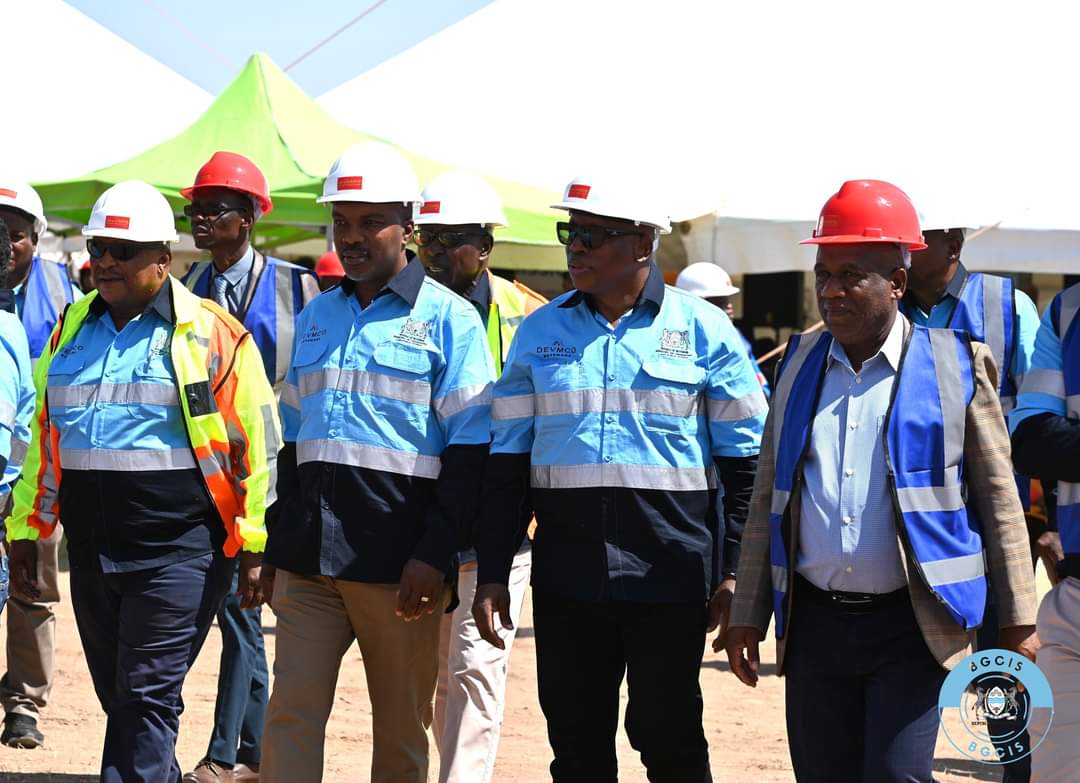The Botswana government has launched a new program aimed at accelerating the development of school infrastructure and critical public amenities in Molepolole. The initiative, spearheaded by the Ministry of Transport and Public Works under the leadership of Minister Eric Mothibi Molale, focuses on ensuring that local contractors, particularly Batswana, play a pivotal role in the development and delivery of key infrastructure projects.
The program, titled Development Manager Model, aims to strengthen oversight and ensure that projects are delivered on time, adhere to quality standards, and are completed efficiently. This model introduces a systematic approach where the responsibility for the execution of projects is shared between the contractors, the Development Manager, and the Government. By fostering accountability across all stakeholders, the government hopes to reduce delays and enhance project outcomes.
Key Objectives of the Development Manager Model
The launch of this initiative is rooted in ensuring several key outcomes:
- Local Contractor Empowerment: Batswana contractors assigned to the projects are expected to execute and complete the work within the agreed-upon timelines.
- Timely Completion: Projects should be completed within the stipulated period to avoid delays that often plague public infrastructure projects.
- High-Quality Standards: The initiative emphasizes delivering projects that meet high-quality benchmarks, ensuring that the infrastructure serves the community effectively for years to come.
- Shared Responsibility: Both the Development Manager and the Government are accountable for the success of the projects, ensuring a unified focus on execution.
Scope of the Projects
The Development Manager for the initiative, Devmco, has been tasked with overseeing multiple critical infrastructure projects, with a particular focus on schools and public works in and around Molepolole. Some of the flagship projects under this initiative include:
- Internal Roads in Molepolole: This includes resurfacing key roads, the installation of a wastewater system, and the installation of solar-powered streetlights.
- Molepolole Bypass Road: A crucial project aimed at alleviating traffic congestion in Molepolole by providing an alternative route.
- School Infrastructure Development: New schools are to be constructed in Kopong and Kgwakgwe in Kanye, with the goal of enhancing access to quality education in these areas.
- Health Infrastructure: The construction of clinics in Kopong and Mogoditshane aims to improve healthcare accessibility for residents.
- Drainage Systems and Roads: Projects such as the rainwater drainage system in Thamaga and the Letlhakeng-Kaudwane road aim to address infrastructural challenges, especially during the rainy season.
- Major Road Intersections: The highly anticipated Molapo Crossing Interchange, commonly known as “spaghetti,” will improve traffic flow at key junctions like Airport Junction and Block 8.
Other projects include the construction of new offices for the Letlhakeng Land Board, and the District Commissioner’s Office and Council in Mogoditshane, all of which will enhance local government services.
Building Botswana’s Future
Minister Eric Molale emphasized that the Development Manager Model is more than just an infrastructure program – it is a strategic move to ensure that local talent is cultivated and empowered through these projects. By prioritizing Batswana contractors and establishing clear accountability structures, the government aims to promote not only economic growth but also the professional development of local contractors.
“The goal is to have projects completed on time and to a high standard, with full accountability from both the contractors and the government. This will reduce delays and ensure that the infrastructure serves its purpose effectively,” said Minister Molale during the launch.
The official launch of the school infrastructure projects in Molepolole is a promising development that will benefit communities across Botswana. With an emphasis on timely, high-quality execution, the government is setting a strong example of how infrastructure projects should be managed. This initiative also underscores the importance of local contractor involvement, fostering growth and development from within the nation.
As the projects unfold, communities in Molepolole, Kanye, Kopong, and surrounding areas can look forward to improved roads, schools, healthcare facilities, and more – ultimately enhancing the quality of life for residents and supporting the growth of Botswana’s future.










